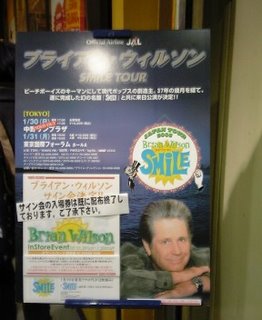3:50 I left the lodge. I thought that an early start meant an early reach to the top, so I could avoid the strong sun light in the middle of the day. The lodge staff served me some rice balls for breakfast. I saw the blue sky, almost no clouds and I felt lucky. It was still dark and cold, so I put on my head light and my rain gear as well as winter clothes.
4:40 The Old 7th station. It was getting colder and colder, so I put on my turtle neck fleece.
4:42 The sunrise was about to begin. But the mount lines hid the sun.
When I turned back, I could see the shadow of the Mt. Fuji. Beautiful.
You can see some toriis (shrine's gate) when you pass the 8th station. Actually, the land above the 8th station is the private property of Fujinomiya-sengen shrine, not public. Ieyasu Tokugawa, the first shogun of Edo era (1603-1867) gave this land to the shrine. At the modern era, the government and the shrine were in conflict about the land's ownership, but at last, in 1974, the supreme court admit the shrine's ownership.
I felt short of energy down there, I ate emergency food.
By the way, Cellphone communication is available under the 9th station. (I saw some people using their cellphones at the 9 and half station.)
The top was approaching.
I had felt fear of altitude illness, but I was OK. Maybe enough rest and water contributed to my body's health. In the past, when I went to the same altitude in Peru and China, I felt a headache. At that time, I went there by plane or bus, so fast moving. But this time, I was approaching the top by foot, slow moving.
10 More minutes.
7:26 Here was the top! It took three hours and forty minutes from the new 7th station to the top. The time was more than three hours, normal speed, but I was satisfied with the time. There was a sea of clouds and the plain blue sky. The scene made me delighted.
The shrine on the top. I ate rice balls in front of it. Good breakfast.
This shrine was not the final destination. If you don't go to the highest point on the top, you are like the painter, in Chinese old story, who was drawn the perfect body of a dragon but forget to draw the dragon's shining eye. The highest point is located at...
... around the crater...
near the meteorological station. The road to the station is the most slippery one of all the road. It is the last hardest part.
The monument at the highest point in Japan, in front of the station. Everybody took pictures of each other, everybody took a rest in the atmosphere of accomplishment.I also took a rest, and at 8:20, begun to go down the mountain. It was perfectly clear, and the strong sunlight annoyed me. I should have taken my sunglasses.
Going down Mt. Fuji was harder than expected because of the slippery ground. If you make go fast, you are likely to slip. I went down carefully. In addition to, I had a headache, finally. I should have taken a rest at a lodge (200 yen for 30 minutes.)
I arrived at the 5th station at 12:00. It took four hours from the top. It may be one of the unique characteristics of Mt. Fuji that it is almost the same time climing up time and going down.
Climbing up Mt. Fuji was harder than I had thought, I felt a deep emotion for reaching the highest point in Japan. I don't think that I will try again soon, but I will remember the scene and experience of this interesting.





















